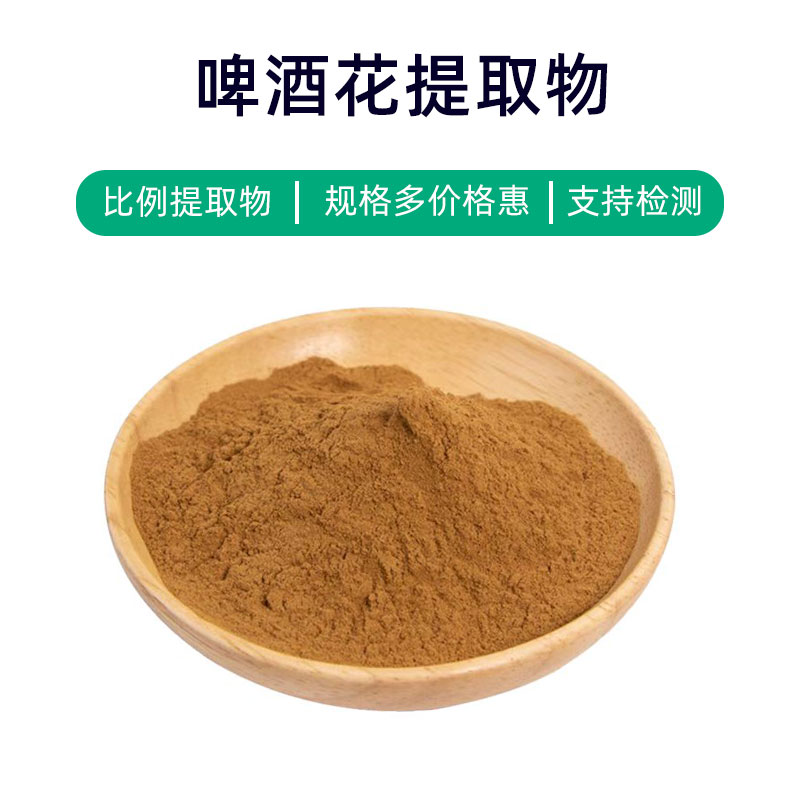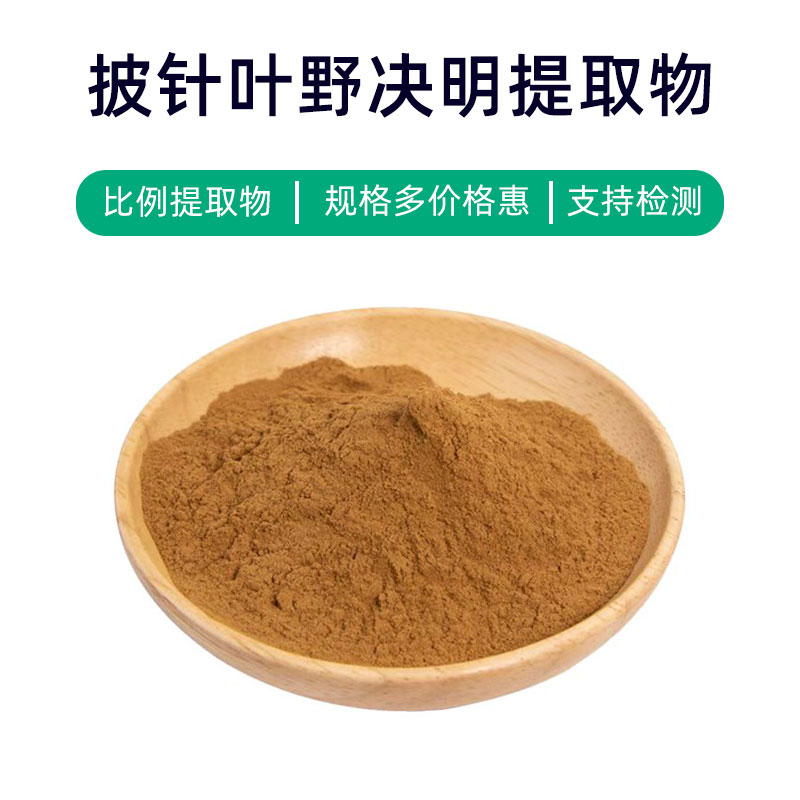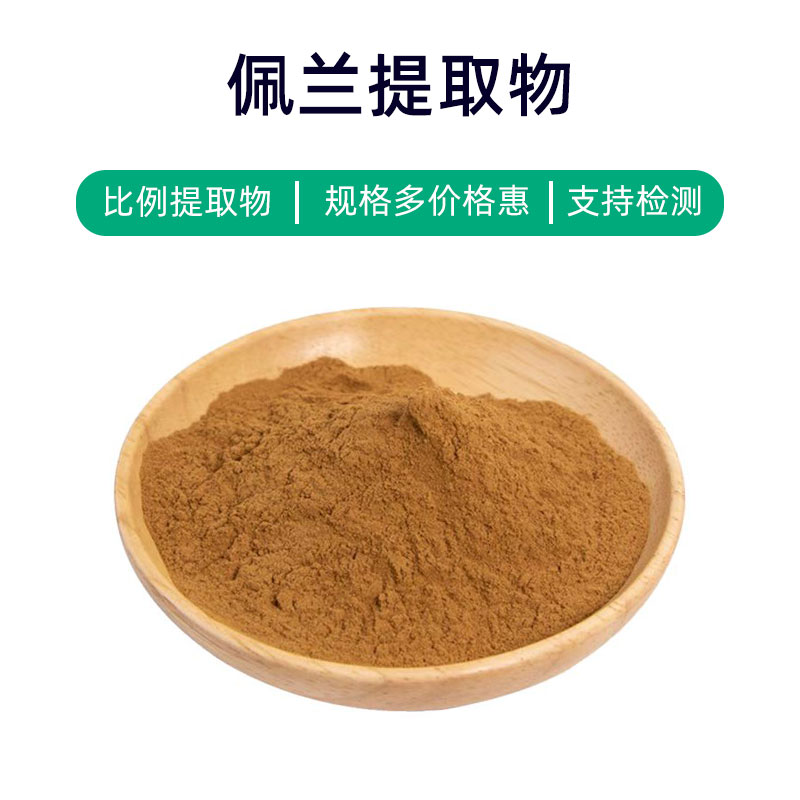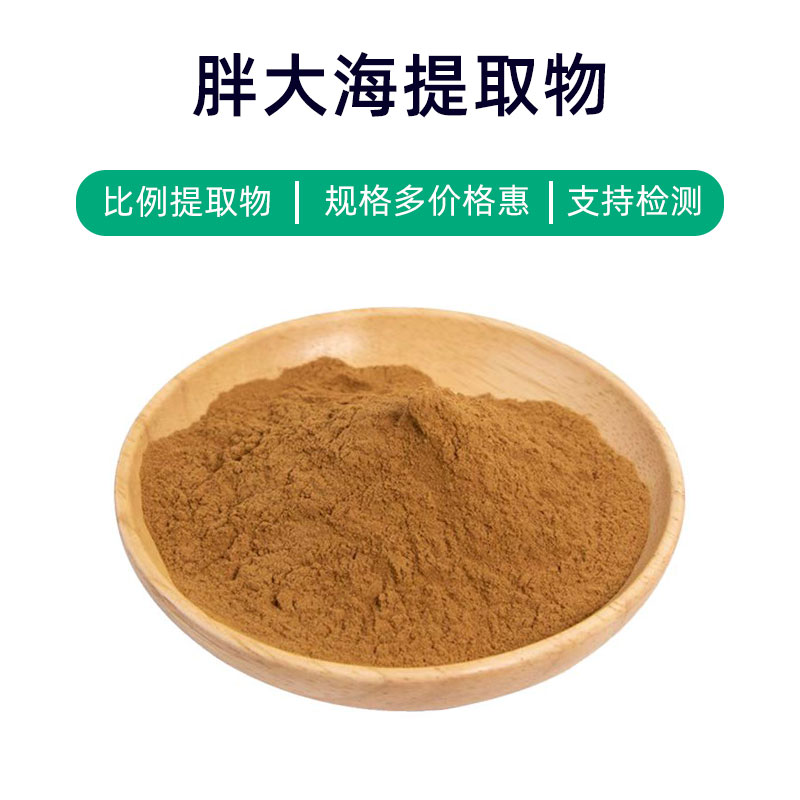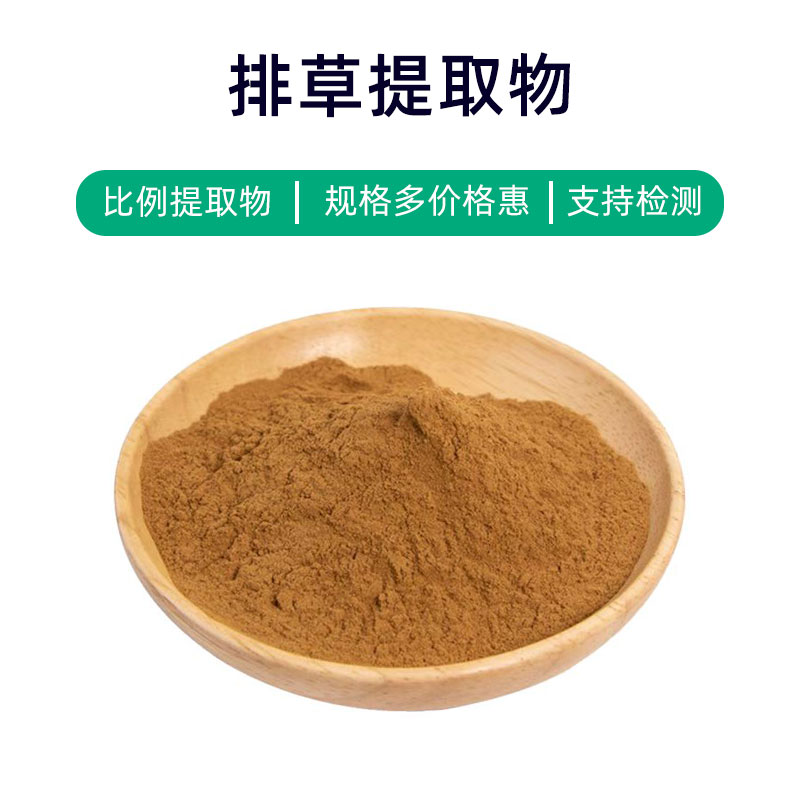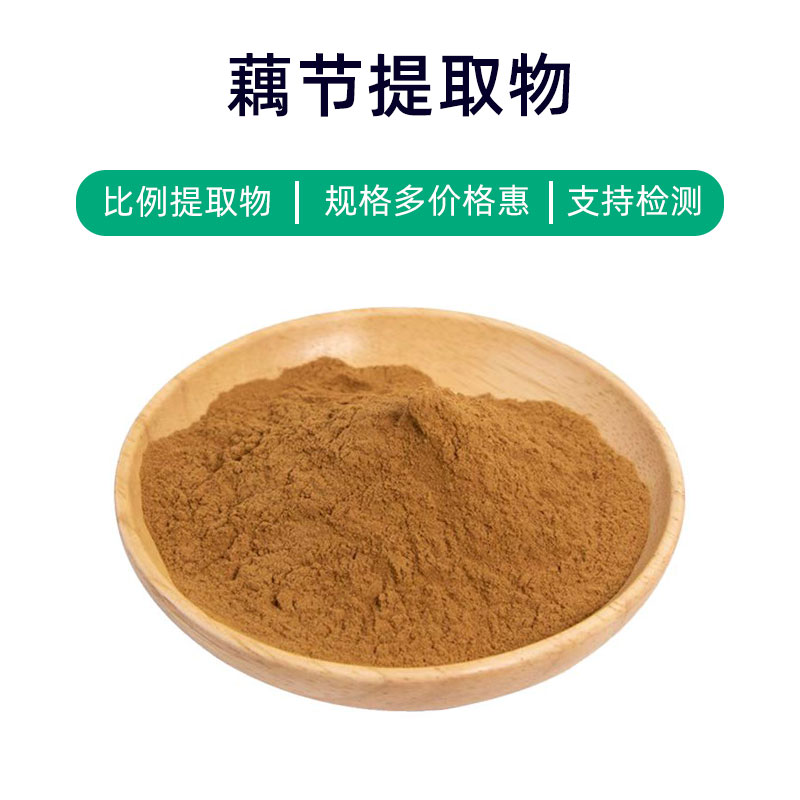Introduction to Lysimachia Extract
Lysimachia extract is a natural plant extract obtained from the Lysimachia plant, primarily containing bioactive components such as lysimachin and lysimachic acid. It is extensively used in the fields of medicine, dietary supplements, and cosmetics.
The key components, lysimachin and lysimachic acid, possess anti-inflammatory, analgesic, and antibacterial properties, making Lysimachia extract commonly used for improving urinary system health and for the prevention and treatment of urinary tract infections and kidney stones. It also has diuretic effects that help promote the excretion of toxins and improve urinary function.
In dietary supplements, Lysimachia extract is often made into oral liquids, capsules, or tablets for consumption. In cosmetics, it is frequently added to skincare products to relieve skin inflammation, provide anti-inflammatory effects, and regulate sebum secretion, thereby improving skin health.
In summary, as a natural plant extract, Lysimachia extract offers various benefits and can be widely applied in medicine, dietary supplements, and cosmetics, providing effective support for health and beauty.
Production Process of Lysimachia Extract
The production process of Lysimachia extract typically consists of the following steps:
- Harvesting Lysimachia Plants: First, mature Lysimachia plants are collected at appropriate seasonal and climatic conditions. These plants typically grow in mountainous or forest areas of tropical and subtropical regions.
- Preliminary Processing: The harvested Lysimachia plants undergo preliminary processing, including removing impurities, washing, and chopping, to facilitate subsequent extraction.
- Extraction: The pre-processed Lysimachia plant material is extracted using methods such as water extraction, ethanol extraction, or supercritical fluid extraction. Choosing an appropriate extraction method maximizes the retention of active components in Lysimachia.
- Filtration and Concentration: The extracted liquid is filtered to remove solid particles and impurities, followed by concentration to enhance the extract's concentration and purity.
- Drying: The concentrated Lysimachia extract undergoes drying to reduce moisture content and turn it into powder form. Common drying methods include spray drying and vacuum drying.
- Refinement: The dried Lysimachia extract may undergo further refinement to eliminate residual impurities and solvents, increasing the product's purity and quality.
- Packaging: Finally, the refined Lysimachia extract is packaged in suitable containers, typically sealed aluminum foil bags or plastic bottles, to protect it from moisture and light, and extend shelf life.
In summary, the production process of Lysimachia extract includes harvesting, preliminary processing, extraction, filtration and concentration, drying, refinement, and packaging. Each step requires strict control to ensure the final product's quality and safety.
Efficacy and Side Effects of Lysimachia Extract
Lysimachia (Scientific Name: Uncaria rhynchophylla) extract is a traditional herbal remedy widely used in Chinese medicine and dietary supplements. Its main effects and benefits are as follows:
- Antioxidant Effects: Lysimachia extract contains abundant natural antioxidants such as polyphenols and flavonoids, helping to eliminate free radicals in the body, reduce oxidative stress damage, and maintain overall health.
- Anti-inflammatory Effects: Active components in Lysimachia extract can inhibit inflammatory responses and reduce the release of inflammatory mediators, showing potential therapeutic applications for inflammatory diseases.
- Neuroprotective Properties: Research indicates that Lysimachia extract has protective effects on the nervous system. It may regulate neurotransmitter levels, inhibit oxidative stress, and reduce inflammation, potentially mitigating the progression of neurodegenerative diseases such as Alzheimer's and Parkinson's.
- Improvement of Cognitive Function: Lysimachia extract is believed to enhance cognitive function. Some studies indicate it can improve learning and memory, increase attention and focus, making it potentially significant for cognitive protection in the elderly.
- Cardiovascular Protection: Lysimachia extract may offer cardiovascular benefits by lowering blood lipid and cholesterol levels, inhibiting damage to endothelial cells, and reducing atherosclerosis risk.
- Antidepressant Effects: Some studies suggest that Lysimachia extract may have antidepressant effects, with its active components regulating neurotransmitter levels and improving mood.
- Anti-anxiety Effects: Lysimachia extract is also thought to have anti-anxiety properties, with its calming effects helping to alleviate anxiety and tension, and improve sleep quality.
Despite its numerous benefits, caution is warranted regarding possible side effects and safety issues. Some individuals may experience allergic reactions, digestive discomfort, headaches, etc. It is advisable to consult with a doctor or pharmacist before use, adhering strictly to the dosage instructions on the product label.
Application Scenarios and Dosage of Lysimachia Extract
Lysimachia extract has broad applications in pharmaceuticals, food, and cosmetics. Below are its application scenarios and recommended dosages in various fields:
- Pharmaceuticals:
- Application Scenarios: Lysimachia extract is primarily used in treating neurological disorders such as Alzheimer's and Parkinson's disease, cardiovascular diseases, depression, and anxiety disorders.
- Dosage: Generally, Lysimachia extract comes in forms such as capsules, tablets, or oral liquids. Common dosages range from 100-300 mg per dose, taken 1-3 times daily. Specific dosages should be determined based on a doctor’s advice and product instructions.
- Food:
- Application Scenarios: In the food sector, Lysimachia extract is typically used as a dietary supplement ingredient to regulate immune function, enhance antioxidant capacity, and improve sleep quality.
- Dosage: The inclusion of Lysimachia extract in food products is generally determined by manufacturing processes and formulations. It is recommended to use it under the guidance of professionals, with daily intake not exceeding the recommended dosage indicated on the product label.
- Cosmetics:
- Application Scenarios: In cosmetics, Lysimachia extract is commonly used as an antioxidant, soothing, and moisturizing ingredient in skincare products, shampoos, and conditioners.
- Dosage: Specific dosages depend on product types and formulations, and it is generally advised to follow the product instructions to avoid overuse.
In summary, while Lysimachia extract has broader applications in the pharmaceutical field, it also has a significant market and potential in the food and cosmetics sectors. When using it, appropriate product choice based on specific situations and dosage recommendations from doctors or professionals should be followed.
Description of the Source Plant of Lysimachia Extract, Distribution, and Growth Environment
Lysimachia (Scientific Name: Cistanche deserticola), also known as desert ginseng, is a hemiparasitic plant belonging to the Lamiaceae family. Below is an introduction to the source plant, distribution, and growth environment of Lysimachia.
- Source Plant:
- Vascular Plant: Lysimachia is a vascular plant that is a perennial herb.
- Hemiparasitic Nature: It is a hemiparasite, typically attaching to the roots of other plants to absorb water and nutrients.
- Physical Characteristics: Lysimachia can grow up to about 1 meter tall, with grayish-white stems, branching, and cone-shaped flower clusters with yellow corollas.
- Distribution:
- Geographical Distribution: Lysimachia is primarily found in northwestern China, including regions like Gansu, Qinghai, Xinjiang, Inner Mongolia, and Ningxia.
- Growth Environment: It typically thrives in arid and semi-arid sandy areas such as deserts, sand dunes, and dry mountainous regions. It can be found at altitudes ranging from 1,000 to 3,000 meters.
- Growth Habits:
- Soil Requirements: Lysimachia prefers loose, well-drained sandy soil and is not particularly fussy about soil but typically does not tolerate waterlogging.
- Light Requirements: It thrives in full sunlight and requires ample sunlight during its growing period.
- Growth Cycle: As a perennial plant, Lysimachia has a long growth cycle, often requiring several years to reach harvest standards.
- Ecological Adaptability:
- Drought Resistance: Lysimachia grows in dry sandy environments and shows strong adaptability to drought.
- Salt and Alkaline Tolerance: In some of its growing regions, Lysimachia also displays certain levels of tolerance to saline-alkaline conditions, allowing it to thrive in such areas.
In summary, Lysimachia grows in the arid and semi-arid sandy regions of northwestern China, demonstrating strong drought and salt-alkaline tolerance, making it a highly adaptable desert plant. It holds significant medicinal value and ecological importance.
Processing and Storage of Lysimachia Extract
The processing and storage of Lysimachia extract are crucial steps in ensuring its effectiveness and quality.
Processing:
- Harvesting: Select healthy Lysimachia plants with intact stems for harvesting.
- Washing: Clean the harvested plants to remove surface impurities and soil.
- Sun-Drying: Sun-dry the cleaned plants to ensure complete drying.
- Grinding: Grind the dried Lysimachia into powder for subsequent extraction.
Storage:
- Dry Storage: Store the extract in a cool, dry place, avoiding direct sunlight and humid environments.
- Sealed Packaging: Package the Lysimachia extract in sealed containers to prevent moisture and impurities from entering.
- Avoiding Oxidation: Minimize the extract's exposure to air to prevent oxidation that could affect quality.
- Regular Inspection: Periodically check the storage conditions and the state of the extract to ensure quality and effectiveness.
By following appropriate processing and storage methods, the efficacy and quality of Lysimachia extract can be maintained throughout its shelf life.
Monica Sun is a seasoned expert in the plant extraction industry with over a decade of experience in research and production. She specializes in the extraction and purification of plant active ingredients, focusing on driving innovation in natural product applications. Monica has participated in the development of multiple functional plant extracts, delivering high-value natural raw material solutions for the health food, pharmaceutical, and dietary supplement sectors.









